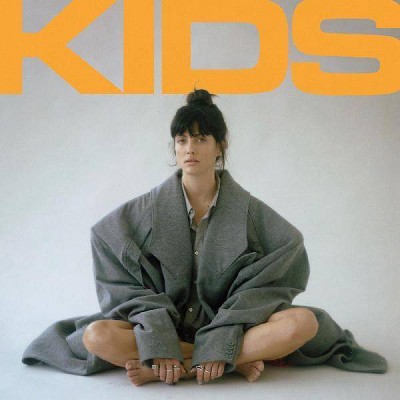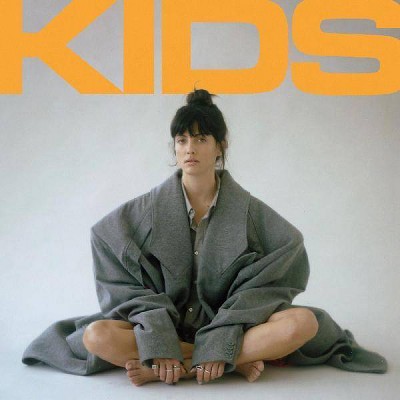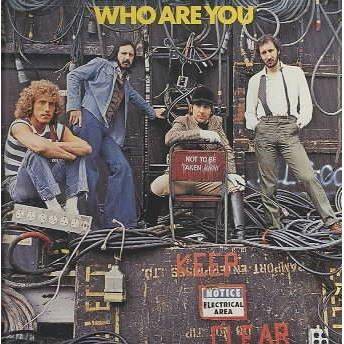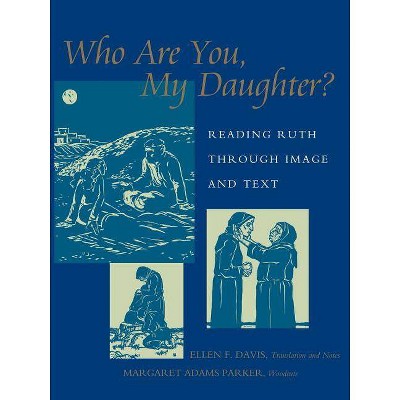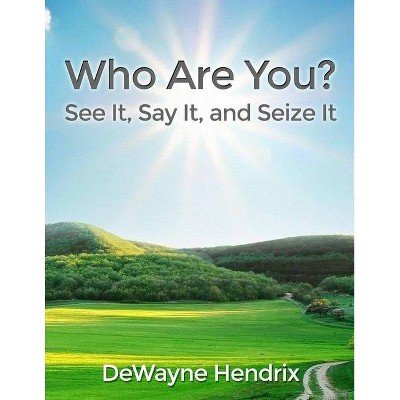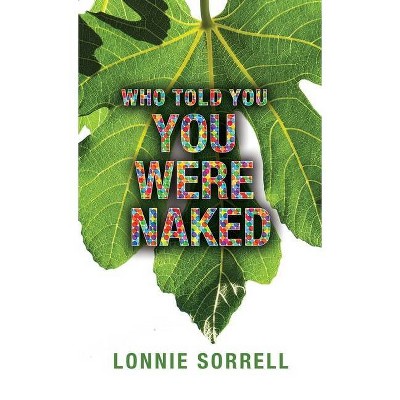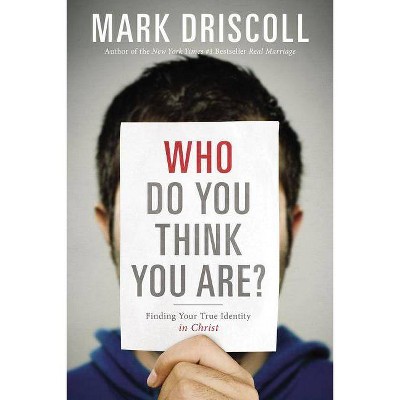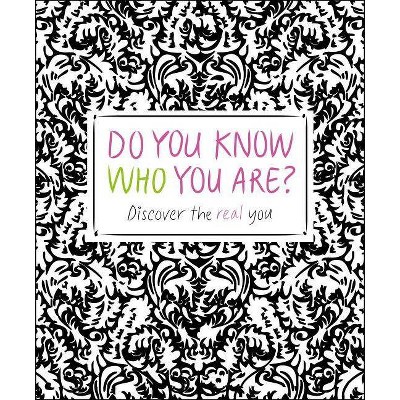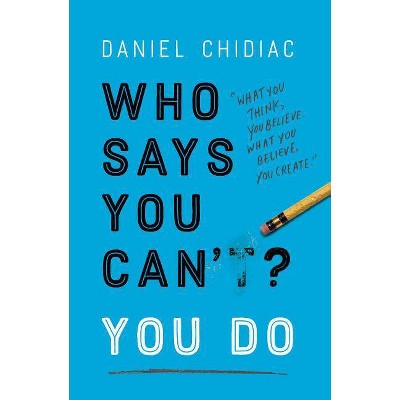You Who Cross My Path - by Erez Bitton (Paperback)
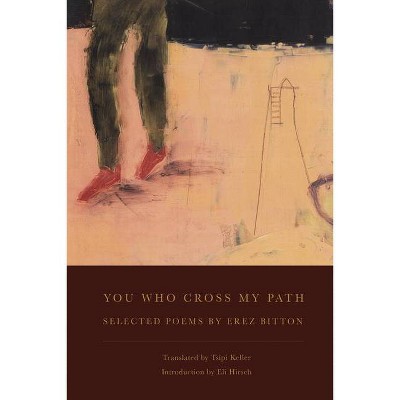
Similar Products
Products of same category from the store
AllProduct info
<p/><br></br><p><b> About the Book </b></p></br></br>The first bilingual U.S. publication of celebrated Israeli poet Erez Bitton, often considered the founding father of Mizrahi Israeli poetry.<p/><br></br><p><b> Book Synopsis </b></p></br></br>This first U.S. publication of Erez Bitton, one of Israel's most celebrated poets, recalls the fate of Moroccan Jewish culture with poems both evocative and pure. Considered the founding father of Mizrahi Israeli poetry, a major tradition in the history of Hebrew poetry, Bitton's bilingual collection dramatically expands the scope of biographical experience and memory, ultimately resurrecting a vanishing world and culture. <p/><b>Preliminary Background Words</b> <p/><i>My mother my mother<br>from a village of shrubs green of a different green.<br>From a bird's nest producing milk sweeter than sweet.<br>From a nightingale's cradle of a thousand Arabian nights.<br></i> <p/><i>My mother my mother<br>who staved off evil<br>with her middle fingers<br>with beating her chest<br>on behalf of all mothers.<br></i> <p/><i>My father my father<br>who delved into worlds<br>who sanctified the Sabbath with pure Araq<br>who was most practiced<br>in synagogue traditions.</i></p><p><i>And I--<br>having distanced myself<br>deep into my heart<br>would recite<br>when all were asleep<br>short Bach masses<br>deep into my heart<br>in Jewish-<br>Moroccan.</i> <p/>The 2015 recipient of the Israel Prize, Erez Bitton was born in 1942 to Moroccan parents in Oran, Algeria, and emigrated to Israel in 1948. Blinded by a stray hand grenade in Lod, he spent his childhood in Jerusalem's School for the Blind. He is considered the founding father of Mizrahi Israeli poetry in Israel--the first poet to take on the conflict between North African immigrants and the Ashkenazi society, and the first to use Judeo-Arabic dialect in his poetry.<p/><br></br><p><b> Review Quotes </b></p></br></br><br><b>WINNER OF THE 2015 ISRAEL PRIZE IN LITERATURE</b><br><b>A <i>World Literature Today</i> Nota Bene for 2016</b> <p/>The concise yet emotional poems of Erez Bitton range from discussions of love and beauty to childhood, the poet's blindness, and his identity as an Israeli of North African descent and the first poet to employ Judeo-Arabic dialect in his work. This bilingual edition includes work from two of his books, allowing an extensive entry to his world without sight but with profound observation. <p/><b>--<i>World Literature Today</i></b> <p/>Erez Bitton takes in the world through uniquely sharp senses, and all that his exquisite senses absorb he transmits to us in a clear and precise language like a fine violin whose function is not to glorify the player but the music. <p/><b>--Dahlia Ravikovitch</b> <p/>One cannot overstate the importance of Erez Bitton's poetry. At least one of the reasons for this is self-evident: Bitton is the dominant figure in the creation and development of a new and significant tradition in the history of Hebrew poetry--the tradition of Israeli Mizrahi poetry. Many consider him the founding father of this tradition, which dramatically expanded the scope of the biographical experience and cultural memory and became a vital part in the formation of contemporary Hebrew poetry during the last few decades. . . . One is hard-pressed to name another Israeli poet who can claim such an achievement. <p/><b>--Eli Hirsch</b> <p/>It is near impossible to list the number of poets influenced by the poetry of Erez Bitton. <p/><b>--Mois Ben Harash</b> <p/>Erez Bitton is among the pioneers who have introduced the issue of identity in Hebrew poetry. His poetic language draws from the Hebrew of the city, the Hebrew of the outskirts, the Hebrew of the Bible and the Sources, as well as from the liturgical poetry of North Africa; he has also pioneered the inclusion of Jewish-Moroccan Arabic in his poems, right alongside the Hebrew. In his work, the experience of emigration and the clash of cultures attain both personal and universal dimensions, and his poems about blindness shed a light on intimate as well as social landscapes. He is the first to have given a rich and moving poetic expression to the 'other' and his culture. <p/><b>--The Yehuda Amichai Poetry Prize</b> <p/>[Bitton's] poetry is not a subjective one, trapped in the private mythology of its creator. One gets the sense that behind each poem there are people, lives, pain and suffering that hold up the poem and endow it with depth and weight far greater than the weight of the poem as a poem. <p/><b>--Amos Levitan</b> <p/>Bitton's poetry may be defined in several ways, some of which, per force, appear contradictory: he is a great rebel within the tradition of contemporary Hebrew poetry, and he is also someone who has gone back to earlier traditions, precisely those that contemporary Hebrew poetry rebelled against. He is the founding father of a new poetic tradition, and is also the inheritor and practitioner of existing traditions. . . . He rebuilds the continuum of memory through family stories and the figures of his parents as an alternative to the dominant history that rejected them. <p/><b>--Elmog Behar</b><br><br><br><strong>WINNER OF THE 2015 ISRAEL PRIZE IN LITERATURE</strong><br><strong>A <em>World Literature Today</em> Nota Bene for 2016</strong> <p/>The concise yet emotional poems of Erez Bitton range from discussions of love and beauty to childhood, the poet's blindness, and his identity as an Israeli of North African descent and the first poet to employ Judeo-Arabic dialect in his work. This bilingual edition includes work from two of his books, allowing an extensive entry to his world without sight but with profound observation. <p/><strong>--<em>World Literature Today</em></strong> <p/>Erez Bitton takes in the world through uniquely sharp senses, and all that his exquisite senses absorb he transmits to us in a clear and precise language like a fine violin whose function is not to glorify the player but the music. <p/><strong>--Dahlia Ravikovitch</strong> <p/>One cannot overstate the importance of Erez Bitton's poetry. At least one of the reasons for this is self-evident: Bitton is the dominant figure in the creation and development of a new and significant tradition in the history of Hebrew poetry--the tradition of Israeli Mizrahi poetry. Many consider him the founding father of this tradition, which dramatically expanded the scope of the biographical experience and cultural memory and became a vital part in the formation of contemporary Hebrew poetry during the last few decades. . . . One is hard-pressed to name another Israeli poet who can claim such an achievement. <p/><strong>--Eli Hirsch</strong> <p/>It is near impossible to list the number of poets influenced by the poetry of Erez Bitton. <p/><strong>--Mois Ben Harash</strong> <p/>Erez Bitton is among the pioneers who have introduced the issue of identity in Hebrew poetry. His poetic language draws from the Hebrew of the city, the Hebrew of the outskirts, the Hebrew of the Bible and the Sources, as well as from the liturgical poetry of North Africa; he has also pioneered the inclusion of Jewish-Moroccan Arabic in his poems, right alongside the Hebrew. In his work, the experience of emigration and the clash of cultures attain both personal and universal dimensions, and his poems about blindness shed a light on intimate as well as social landscapes. He is the first to have given a rich and moving poetic expression to the 'other' and his culture. <p/><strong>--The Yehuda Amichai Poetry Prize</strong> <p/>[Bitton's] poetry is not a subjective one, trapped in the private mythology of its creator. One gets the sense that behind each poem there are people, lives, pain and suffering that hold up the poem and endow it with depth and weight far greater than the weight of the poem as a poem. <p/><strong>--Amos Levitan</strong> <p/>Bitton's poetry may be defined in several ways, some of which, per force, appear contradictory: he is a great rebel within the tradition of contemporary Hebrew poetry, and he is also someone who has gone back to earlier traditions, precisely those that contemporary Hebrew poetry rebelled against. He is the founding father of a new poetic tradition, and is also the inheritor and practitioner of existing traditions. . . . He rebuilds the continuum of memory through family stories and the figures of his parents as an alternative to the dominant history that rejected them. <p/><strong>--Elmog Behar</strong><br><br><p/><br></br><p><b> About the Author </b></p></br></br><b>Erez Bitton</b>: Born in 1942 to Moroccan parents in Oran, Algeria, Erez Bitton emigrated to Israel in 1948. Blinded by a stray hand grenade he found near his home in Lod, he spent the rest of his childhood in Jerusalem's School for the Blind. He received a B.A. in Social Work from The Hebrew University of Jerusalem, and an M.A. in Psychology from Bar Ilan University. He wrote a weekly column for the Israeli daily <i>Ma'ariv</i> and worked as a social worker and as a psychologist. His first two books, <i>A Moroccan Offering</i> (1976) and <i>The Book of Na'na</i> (1979), established him as the founding father of Mizrahi poetry in Israel--the first poet to take on the conflict between North African immigrants and the Ashkenazi society, and the first to use Judeo-Arabic dialect in his poetry. The author of five poetry collections and a play, he has served as chairman of the Hebrew Writers Association, and is the editor-in-chief of the literary journal <i>Apyrion</i>, which he founded in 1982. Among his awards are the Miriam Talpir Prize (1982), the Prime Minister's Prize (1988), the Yehuda Amichai Prize (2014), as well as the Bialik Prize for Lifetime Achievement (2014). His collection <i>The Book of Na'na</i> was published in French (Editions Saint Germain, 1981). Bitton lives in Tel Aviv, Israel, with his wife Rahel Calahorra, and is father to a son and a daughter. <p/><b>Tsipi Keller</b> was born in Prague, raised in Israel, and has been living in the U.S. since 1974. The author of nine books, she is the recipient of several literary awards, including National Endowment for the Arts Translation Fellowships, New York Foundation for the Arts fiction grants, and an Armand G. Erpf award from Columbia University. Her most recent translation collections are <i>Poets on the Edge: An Anthology of Contemporary Hebrew Poetry</i> (SUNY Press), and <i>The Hymns of Job & Other Poems, </i> a Lannan Translation Selection (BOA Editions). In addition to Erez Bitton's <i>You Who Cross My Path</i> (BOA Editions), her selected volume of Raquel Chalfi's poems, <i>Reality Crumbs</i>, will be published in 2015 (SUNY Press). <p/><b>Eli Hirsch</b> is a poet, editor, and literary critic. Born in Petach Tikva in 1962, he published his first poems in 1979, and holds a graduate degree in Philosophy from Tel Aviv University. He is the author of four volumes of poetry, and his most recent collection is <i>Hanging Gardens of Tel Aviv</i> (Hakibbutz Hameuchad, 2012). He has published numerous book reviews and essays, and, since 2007, writes a weekly column on poetry in the Literary Supplement of the daily Yediot Ahronot. He was Editor in Chief at Modan Publishing, and is currently (since 2003) the Literary Editor at Hargol Publishing House. Hirsch teaches Creative Writing in the Literature Department at Tel Aviv University.
Price History
Price Archive shows prices from various stores, lets you see history and find the cheapest. There is no actual sale on the website. For all support, inquiry and suggestion messages communication@pricearchive.us
